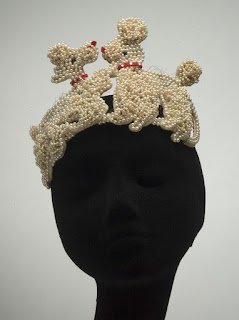Fashion Influences from WWI
Hello again! It's been some time since I have written, and today I wanted to talk about the influence WWI had on women's fashion.
Before the War:
Fashion in the 1900-1910s was often referred to as, “The Age
of Opulence.” Paris was the reigning monopoly of Western fashion. In 1908, led by
the popular designer Paul Poiret, the idea of the natural figure was
reintroduced in Paris, and introduced to Western fashion. Rather than
creating new designs, New York focused on producing popular Parisian styles. While
not far behind, in 1909 they were still producing the S-shaped silhouette and
flared skirt that had been rejected by fashionable Europeans a year before.
"Age of Opulence"
WWI:
By 1915 the war began to impact fashion. Several designers
introduced military influences, such as cut and pockets, to their designs for
women’s day-wear. Fashion now was beginning to accommodate the everyday, average
income woman, instead of the wealthy. Tunics, which were popular with the
upper-class a few years before, were lengthened so as to replace the restrictive
hobble skirt. These new skirts were fuller, and by 1916 hemlines had raised to
several inches above the ankle. As such, elaborate petticoats returned, and jackets
loosened. This created freedom of movement and comfort, especially helpful to
those going to work. Yet, certain jobs required trousers and bloomer dresses to replace
skirts. Jumper blouses also became popular for their versatility. Evening-wear had become
impractical, and clothing requiring elaborate care became a hassle for women.
1916
Work Attire
1917
After the War:
By 1918, slim-line shapes became popular again, never returning
to full hobble skirt style. World War I fashion was manifested by a contrast of
slim lines and loose-fitting tops, and women’s fashion was a stylish fusion of prewar
minimalism and wartime practicality and shaping.
1918
I hope you enjoyed this post! It's always interesting to see how heavily world events can impact the fashion industry and influence designing choices. If you would like to read more, all my research came from this very interesting study:
Stay Classy
Shaelynn








Comments
Post a Comment